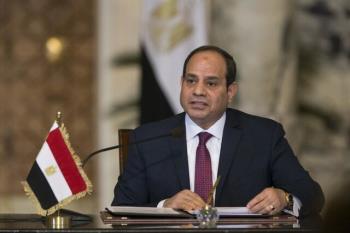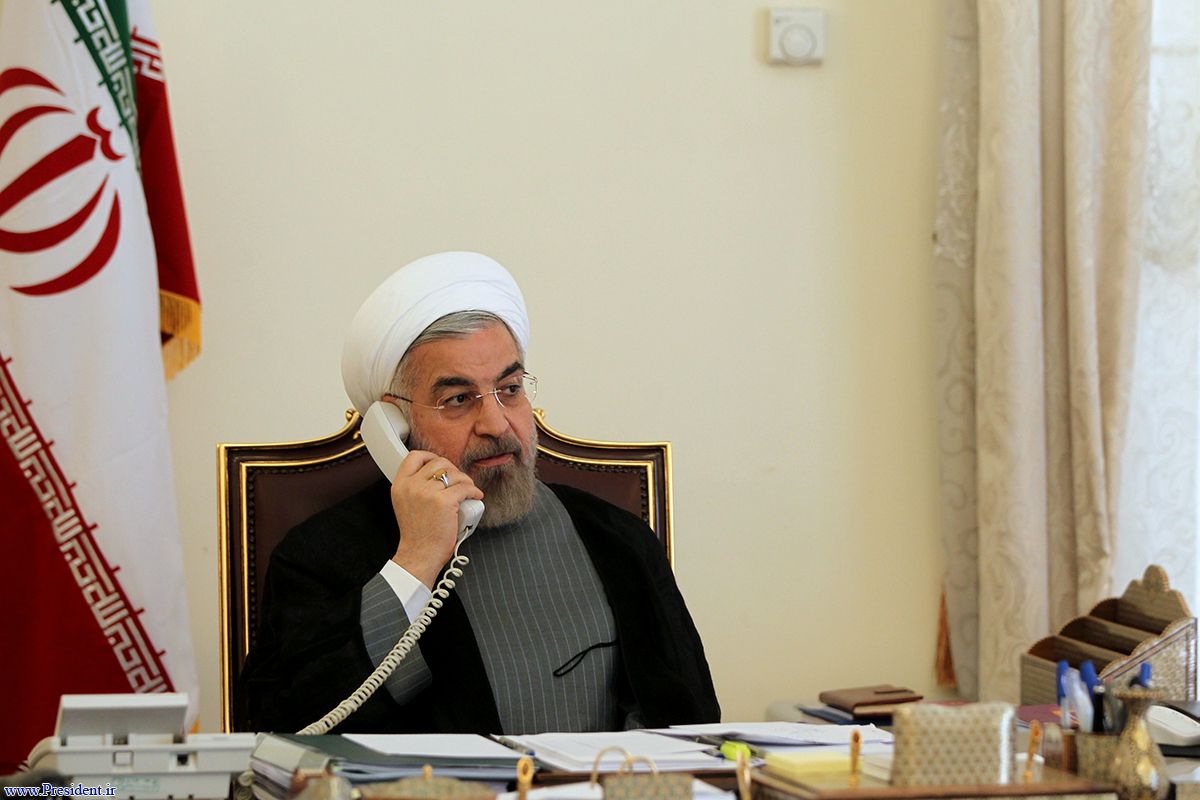Alwaght- Military approach towards Yemeni crisis is doomed to failure, Iranian President Hassan Rouhani said in a phone talk with Qatari Emir Sheikh Tamim bin Hamad al-Thani on Monday.
President Rouhani warned that the recent unprecedented attacks by a Saudi-led military coalition and militia loyal to the former Yemeni government on the western province of Hudaydah would lead to a humanitarian crisis in the impoverished country, and stressed that stability and security should be restored to the war-ravaged country and the entire Wes Asia through political channels.
"The continuation of these conflicts has put the poor Yemeni people under intolerable pressure and we are all duty-bound to help this oppressed nation," the Iranian president pointed out.
Saudi Arabia and the United Arab Emirates launched a major assault on June 13 to take Hudaydah, a densely-populated city and the war-torn country's most vital port. Yemeni nation imports 90 percent of its food, mainly through Hudaydah where UN inspectors check ships.
The Ansarullah movement, which has been of significant help to the Yemeni army in defending the country against the invading forces, has been running state affairs in the absence of an effective administration during the past three years.
The invasion of Hudaydah has already triggered fears of a fresh humanitarian crisis in a country where more than 22 million people are in need of aid, including 8.4 million who are at risk of starvation.
Yemen has been since March 2015 under a brutal aggression by Saudi-led coalition, in a bid to restore power to fugitive former president Abd Rabbuh Mansour Hadi.
Over 14,000 Yemenis have been killed and tens of thousands injured in Saudi-led strikes, with the vast majority of them being civilians, especially women and children.
Interaction, dialog Iran's policy for ending regional disputes
Elsewhere in his remarks, the Iranian president emphasized that the Islamic Republic's policy is based on interaction and dialogue with regional countries with the purpose of putting an end to the ongoing conflicts, adding that the establishment of stability and security across the region would be beneficial to all regional nations.
"We regard as incorrect the adventurous policies of certain regional countries and believe that the continuation of this process will undoubtedly intensify the existing problems in the region, including in Palestine, Syria and Yemen," Rouhani said.
Saudi-led embargo on Qatar unjust
Rouhani praised the Qatari nation's resistance against Saudi-led blocks pressures and bullying, saying "The Islamic Republic of Iran believes that the imposed siege on Qatar is unjust, leading to more division and tension among the countries of the region and will do its best to help and cooperate with the Qatari government and people, and contribute to regional stability".
In June 2017, Saudi Arabia, the United Arab Emirates (UAE), Bahrain, and Egypt severed diplomatic relations with Qatar, in a scheme generally believed to have been orchestrated by Riyadh. The four countries accused Qatar of sponsoring “terrorism” and destabilizing the region, an allegation strongly denied by Doha.
Several African countries have also broken ties with Qatar in support for the Saudi-led quartet.
The Saudi-led quartet presented Qatar with a list of demands and gave it an ultimatum to comply or face consequences. The demands included closing the Doha-based Al Jazeera broadcaster, removing Turkish troops from Qatar’s soil, scaling back ties with Iran, and ending relations with Egypt’s Muslim Brotherhood movement.
The quartet also imposed sanctions against Doha, including restrictions on Qatari aircraft using the airspace of the four countries. To further pressure Qatar, Saudi Arabia totally closed its land border with its tiny neighbor, through which much of Qatar’s food supply crossed.
Qatar, however, refused to yield and denounced the demands as unreasonable, saying its sovereignty had been attacked. In return, the four boycotting countries vowed to impose further sanctions.
Only dialogue can solve disputes: Qatari Emir
The Qatari Emir, for his part, said all regional conflicts can be solved only through dialogue, adding that no country can impose its stance on others.
He emphasized that his country would continue to support the Palestinian people and their resistance against the Israeli regime.



























